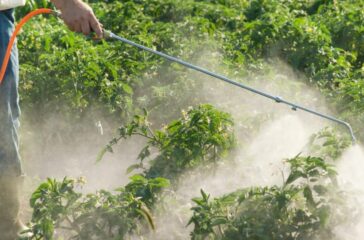California pushes ahead with its new pesticide-reduction plan
By Pam Strayer and Carey Gillam
Amid mounting evidence of the risks some synthetic pesticides pose to human and environmental health, California regulators this week were pushing ahead with a recently announced “roadmap” aimed at transitioning the state to more sustainable options for managing weeds and insects.
 EWG
EWG